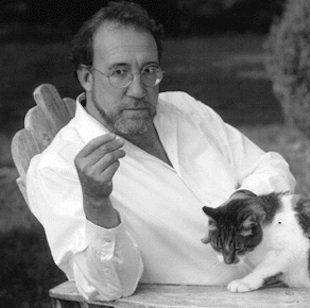A Quote by Jorge Luis Borges
I can’t talk about my books. I have written them and tried to forget them. I have written once, and readers have read me many times, no? I try to think of what I wrote, it’s very unhealthy to think about the past, the case of elegies is very sad, as much as the case of complaints.
Related Quotes
I think it's important to humanize history; fiction can help us remember. A lot of books I've read in the past have been so much more important than textbooks - there is an emotional connection with one particular person. I'm very much of a research-is-important type of fiction writer, even for contemporary fiction. I wrote about blogs in America and I've never blogged. But I read many, many blogs - usually about feminist things, or about race, or about hair.
I tried not to write about the O.J. Simpson case too much because so much has already been said about it, but there are a lot of questions left worth asking. However, the case is very useful to illustrate other points. The case is a common reference point because everybody knows the ins and outs of it, more than any other case in this generation, so it becomes useful to reference other points. In itself, there aren't that many questions about it that remain unanswered.
And I thought about how many people have loved those songs. And how many people got through a lot of bad times because of those songs. And how many people enjoyed good times with those songs. And how much those songs really mean. I think it would be great to have written one of those songs. I bet if I wrote one of them, I would be very proud. I hope the people who wrote those songs are happy. I hope they feel it's enough. I really do because they've made me happy. And I'm only one person.
I suddenly thought about being backstage, and I think it shocks you to meet the people you shared your bedrooms with. And a lot of them either take themselves too seriously or don't know how to take themselves at all. But I wanted to be aware in a very sarcastic way that every song I've written has probably been written about 12-16 times before. And doing that makes it very hard for me to accept serious singer-songwriters in the world, the up-and-comers, the ones who are out there who let that define their every move, who live and die and breathe for it. It's a bit of a tragedy, I think.
The young adult literature is relatively new - it just kind of exploded in the 2000s. When I grew up, there weren't bookstores with sections dedicated to teen lit, nor was my generation raised reading books written specifically for us. Because of that, today we still think of books for teens as children's books and so when you write a book that includes sensitive topics, it just seems even more controversial. What's troubling to me about that is these are issues adults know that teens deal with. Not writing about them makes them something we don't, or can't talk about.
When I get the possibility of using a character like Bruce Wayne or Dick Grayson, I try and think about what's most exciting or interesting about them as a person, so I try and think what they are at their core, or what piece of their psychology do I gravitate toward that I respect, and I'm excited by it when I read books about them.







































